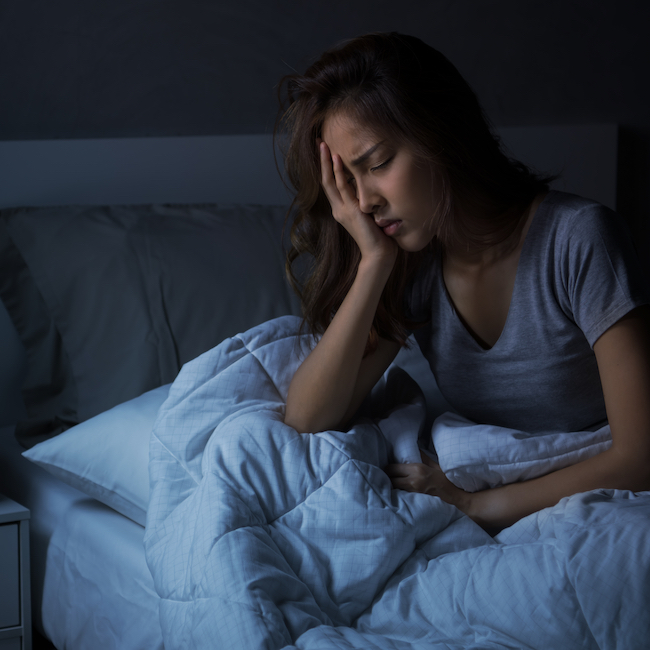
There are a number of things happening internally that could be a driving force of your insomnia. “Thyroid problems, problems with the adrenal glands, and other neurological issues could affect your sleep pattern,” says Dr. Andrew Ordon, a host of The Doctors. If you think you may have one or multiple of these conditions, you should consult with your doctor to get the necessary tests done before you make any major lifestyle changes.
As far as external factors, your diet and lifestyle can also negatively impact your sleep. “Things like trying to go to sleep when you’re stressed out or have anxiety and lack of exercise can also contribute to insomnia,” Dr. Ordon says, “food allergies can contribute as well, especially if you have reflux associated with those allergies.” The things you’re ingesting outside of food could also be a factor, especially medications. “Any type of medication, like psychotropic drugs, or medications for treating attention issues, can affect your sleep pattern.”
Something that many people may not realize is that the supplements you are taking can also play a role in perpetuating insomnia, or causing it in the first place. “The biggest thing in terms of supplements that you want to avoid is anything that contains stimulants, so we are talking about things like caffeine and taurine, for example.” These substances are most commonly found in preworkout supplements and energy drinks. While they can give you an energy boost to power through your workout or busy workday, if consumed too often or too late in the day it could keep you tossing and turning at night. It may be best to limit supplements containing these substances if you have difficulty with falling asleep or staying asleep—a good rule of thumb is reading the nutrition facts of the supplements you purchase to make sure these ingredients don’t sneak their way in.
If you struggle with insomnia, what are some supplements you can take instead? Dr. Ordon has a few recommendations. “I have three supplements that have been proven to help, and we have discussed them on The Doctors with our sleep expert Dr. Breus—supplements such as Vitamin D, magnesium, and the amino acid tryptophan, are all supplements that potentially could help you get a better night’s sleep, and could help you deal with insomnia problems.” Besides digesting these in supplement form, you can also find them in certain foods—Vitamin D is found in most citrus fruits, while magnesium is found in spinach and legumes, and tryptophan is found in cheese, egg whites, and chicken.
As stated previously, if you suffer from insomnia, consider removing supplements or products containing stimulants of any kind from your diet. If your insomnia persists or it affects your day-to-day life, consult with your healthcare provider to come up with a custom tailored healthcare plan designed for you and your needs.


